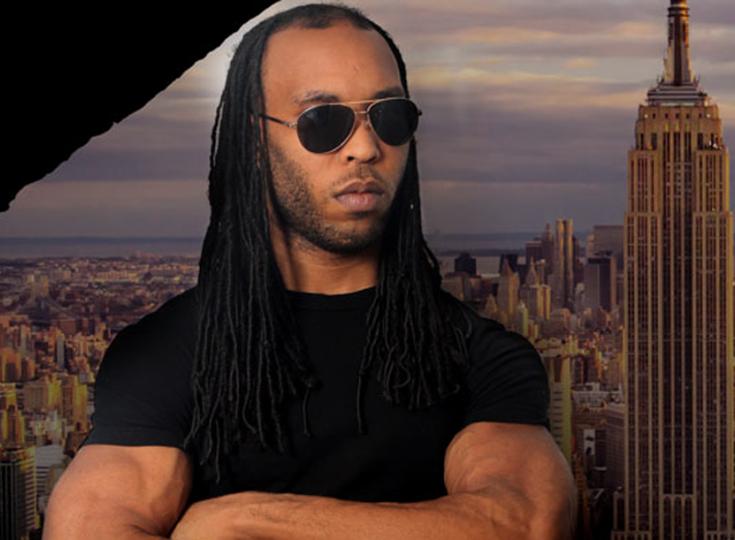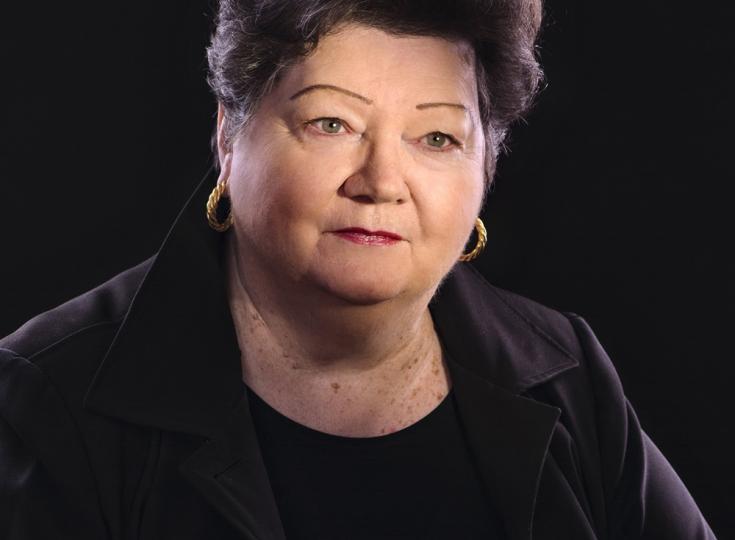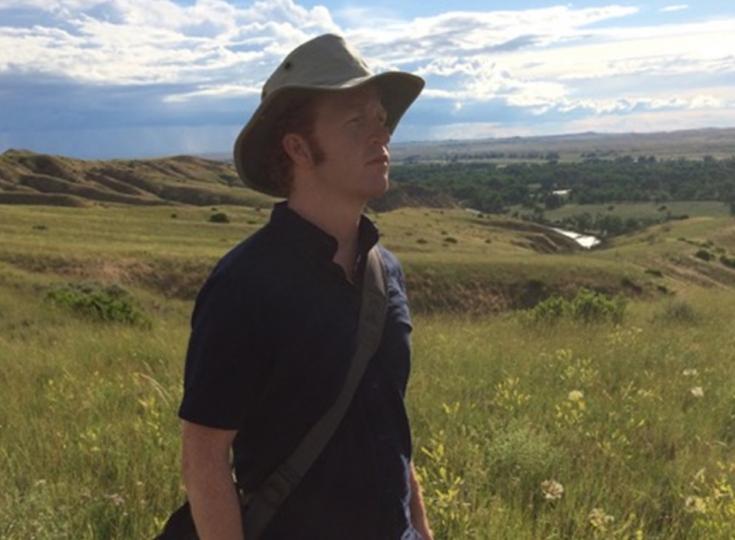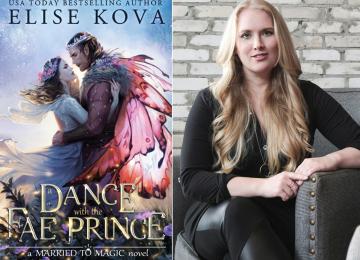Colin Dodds - Compelling, Tightly-woven Coming-of-Age Story
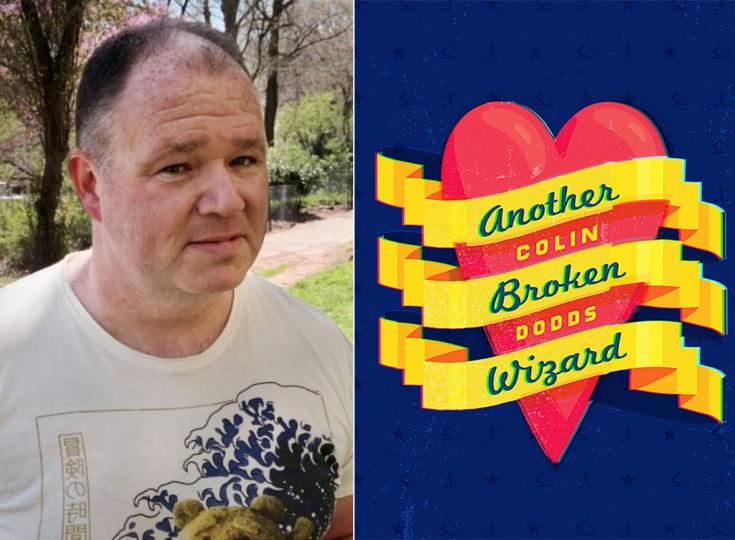
Colin Dodds is an award-winning author and filmmaker, whose works include Pharoni, Ms. Never and The 6th Finger of Tommy the Goose. He grew up in Massachusetts and lived in California briefly, before finishing his education in New York City. Since then, he’s made his living as a journalist, editor, copywriter and video producer. His work has appeared in Gothamist, The Washington Post and more than three hundred other publications, and been praised by luminaries such as David Berman and Norman Mailer. Forget This Good Thing I Just Said, a first-of-its-kind literary and philosophical experience (the book form of which was a finalist for the Big Other Book Prize for Nonfiction), is available as an app for the iPhone. He lives in New York City, with his wife and children. As our Author of the Day, he tells us all about his book, Another Broken Wizard.
Please give us a short introduction to what Another Broken Wizard is about.
Another Broken Wizard starts with Jim Monaghan, going back to Worcester. He didn’t want to, but unemployment and his father’s open-heart surgery forced his hand. While tending to his father and flirting in the ICU romance, Jim seeks out his childhood best friend, Joe Rousseau. Joe has problems. The latest is with a local gang, and his solution only makes things worse. Jim follows his friend into Worcester nights defined by drugs, guns and fistfights. And as the danger escalates, then has to live with the consequences.
Straddling childhood and adulthood, a fading industrial home town and the new-economy world of our attenuated aspirations, straddling the love for a friend and the urge toward self-preservation, Another Broken Wizard is above all a portrait of Worcester, Massachusetts.
Can you tell us what inspired you to write Another Broken Wizard? Was there anything in particular that made you want to tackle this?
One of my best friends, Joe Martin, was shot to death on his 30th birthday. About a year after he died, I realized that I still couldn’t think of anything else. And I wanted to write another novel. So I decided to go all in.
The way he died made me reconsider the choices I was making in my own life and punctuated my life into a clear before and after. At the same time, my parents were getting divorced and moving away from Massachusetts, which was rough in a different way.
The book was a way of going back to look at these massive parts of my life – growing up and a reckless young adulthood on the one hand, and my hometown on the other. It was a matter of asking just what the hell were they? Why were they like that? And at the same time saying goodbye in a full and satisfactory way.
The book offers a vivid portrayal of Worcester, Massachusetts. How important was it for you to accurately depict the city, and what research did you conduct to achieve this?
My father grew up in Worcester’s golden age, during the fifties and early sixties. And I grew up in and around Worcester and Shrewsbury in the eighties and nineties. The city’s fate was always a subject of discussion. Some of it I was just steeped in, and there was a fair amount of work involved in making sure I wasn’t just propagating unfounded rumors.
Worcester is the second largest city in New England, and home to many key scientific and industrial developments of the last 200 years, but there aren’t as many books about it as you might expect. It kind of lurks in the unconscious. I read whatever books I could get my hands on, and tried to give credit where it was due in the form of quotations at the start of each section.
The relationship between Jim Monaghan and Joe Rousseau is central to the story. --How did you develop these characters, and are they based on real people or experiences?
Joe is very real. The Jim character, also the narrator, is somewhere between me and an everyman. I wanted the reader to be see the world through Jim, rather than fixate on him.
How did you approach writing the more intense scenes involving drugs, alcohol, and violence? Were there any particular challenges you faced?
I’ve always been a partisan to Blake’s proposition that the palace of wisdom sits at the end of the road of excess. Sex, drugs and violence, as a writer, are a chance to get at reality in a new way, to make the implicit explicit.
The novel is a place to put characters in extreme situations and discover what they’re really afraid of, what they really desire, what the things are that they can’t say. Those are always fumbling us across our lives. But they can come into their own during the heights of lust and rage, or moments of altered consciousness. They all accelerate the reckoning we hope for from art.
The book ends on a profoundly moving note. Did you always have the ending in mind, or did it evolve as you wrote the story?
The ending is where the book came from. The ending was always where the book always had to go. The ending is the grim light that the book is reaching towards. It’s the closest to sense that the book will make, at least for me.
Your writing has been praised for its vivid characters and tight narrative. Can you share some insights into your writing process?
I always try to make each scene do double or triple duty. Where it’s set can tell you about the characters, their trajectory, where they’re from and so on. What they’re doing there can do much the same. When they talk, where’s the lie? Why are they lying?
I have to move the story forward, but there are many vehicles to do that.
When I wrote this book, I had an arc of where I wanted the characters to go. Then the next step was to sketch out step by step how they’d get there, and what would have to happen to make the implausible seem inevitable.
The book also had to do more than just propel the fates of the two characters. It had to explain the place and time, how it felt, and why it was like that. It was about why I hated it sometimes growing up, and why I missed it so intensely the first time I left. It was about why I never met people quite like the ones I knew growing up ever again.

You have a background in poetry as well. How does your experience with poetry influence your prose writing?
I go back and forth about how much good poetry does for a work of fiction. Sometimes it feels like the writer just wants to write poetry, but decides to hang it onto a plot to maybe make a buck. There are cases when the language in a novel draws attention to itself. It feels self-aggrandizing and disingenuous. I don’t love that. But my suspicion may be a bad conscience for the times I’ve been guilty of it.
Where a background in poetry can help is by keeping the language alive and alert, preventing it from guttering out into tired construction. But that’s a fine line.
Are there any specific scenes or moments in Another Broken Wizard that are particularly meaningful to you?
There’s one scene, where Joe and Jim are hanging out, playing chess into the wee small hours, making fun of each other and talking about history. Just two friends, young men otherwise rather alone in the world, with all kinds of uncertainty ahead, goofing off and getting through the night.
That’s a poignant one for me. For good reasons and bad, I don’t know if I’ll ever quite have that again in my life. Writing the book was something like an exorcism. And it still rattles me to think about.
What can readers expect from you next? Are there any upcoming projects or books you're excited about?
I had a holiday book – The Reign of the Anti-Santas - come out a few months back. It’s a blistering ride through what’s happened to all our fondest hopes over the past 80 years, as told by a semi-immortal C-suite elf. It’s won a few awards. Once it gets chilly outside, I’ll see what I can do to breathe some fresh life into that.
For the last nine months, I’ve also been doing a weekly essay series, called No Homework. It’s about being a working writer, pre-history, spiritual warfare, cheap steaks and more. You might want to add it to your regular rotation.
Right now, I’m focused on Forget This Good Thing, an oracle that uses random-number-generating technology and more than 1,500 original aphorisms to harness synchronicity and deliver a wholly unique experience for each reader, each time you open it. More than that, it’s an attempt - by turns playful and deadly serious - to harness a fundamental force of the universe to turn the world's 6.6 billion smartphones into real-time oracles. We just updated the whole thing, and we’ll be doing installations, events and so forth.

